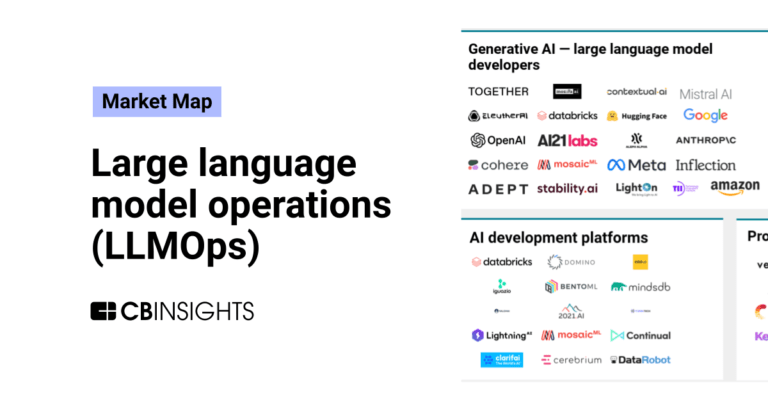
Snorkel AI
Founded Year
2019Stage
Series D - II | AliveTotal Raised
$235MMosaic Score The Mosaic Score is an algorithm that measures the overall financial health and market potential of private companies.
+31 points in the past 30 days
About Snorkel AI
Snorkel AI specializes in data-centric artificial intelligence solutions for the enterprise domain. The company offers an AI data development platform that enables the development of AI applications by programmatically labeling and curating data, fine-tuning large language models, and building specialized AI models. It primarily serves sectors such as banking, healthcare, government, insurance, and telecom with its AI technology. The company was founded in 2019 and is based in Redwood City, California.
Loading...
Snorkel AI's Product Videos
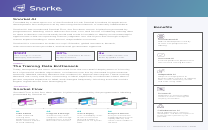
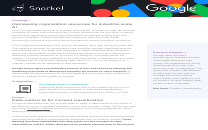
ESPs containing Snorkel AI
The ESP matrix leverages data and analyst insight to identify and rank leading companies in a given technology landscape.
The machine learning training data curation market offers solutions to support data quality control in the AI algorithm training process. These solutions help organizations complete key tasks, such as selecting the best subsets of data for training models, triaging datasets for bias, and identifying labeling errors. Ultimately, these solutions help minimize the downstream effects of poor-quality…
Snorkel AI named as Leader among 13 other companies, including Scale, Voxel51, and Unstructured.
Snorkel AI's Products & Differentiators
Snorkel Flow
Enterprises often lack the resources of large AI developers but still need specialized AI models designed to work with their unique data and meet specific operational requirements. Snorkel Flow revolutionizes enterprise AI development by programmatically addressing the most significant bottleneck: data labeling and curation. Instead of relying on manual, time-intensive processes, Snorkel Flow allows users to label and curate data programmatically using rules, heuristics, and automation. It is 10–100x faster than traditional methods, producing higher-quality datasets in an iterative, adaptable, and auditable way. By shifting data labeling and curation from manual tasks to programmatic workflows, Snorkel Flow enables domain experts—like doctors, researchers, and legal professionals—to focus on meaningful, high-impact work.
Loading...
Research containing Snorkel AI
Get data-driven expert analysis from the CB Insights Intelligence Unit.
CB Insights Intelligence Analysts have mentioned Snorkel AI in 6 CB Insights research briefs, most recently on Oct 11, 2024.
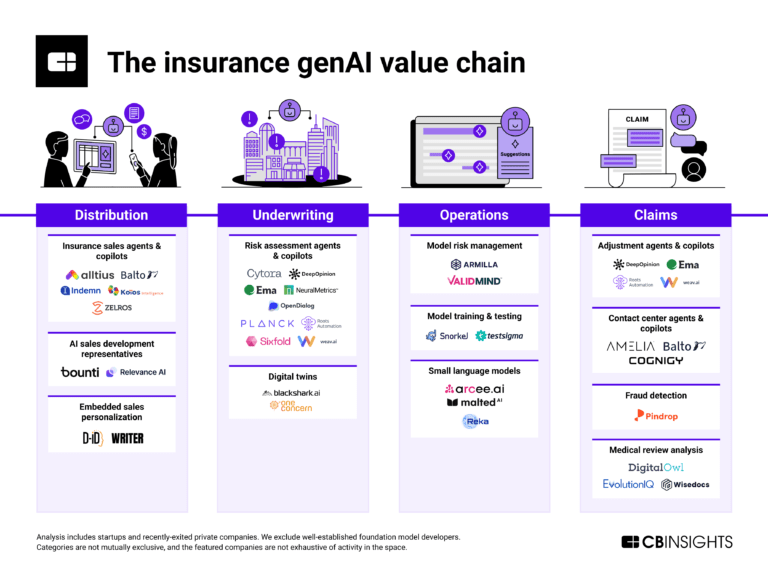
Oct 11, 2024
How genAI is reshaping the insurance value chain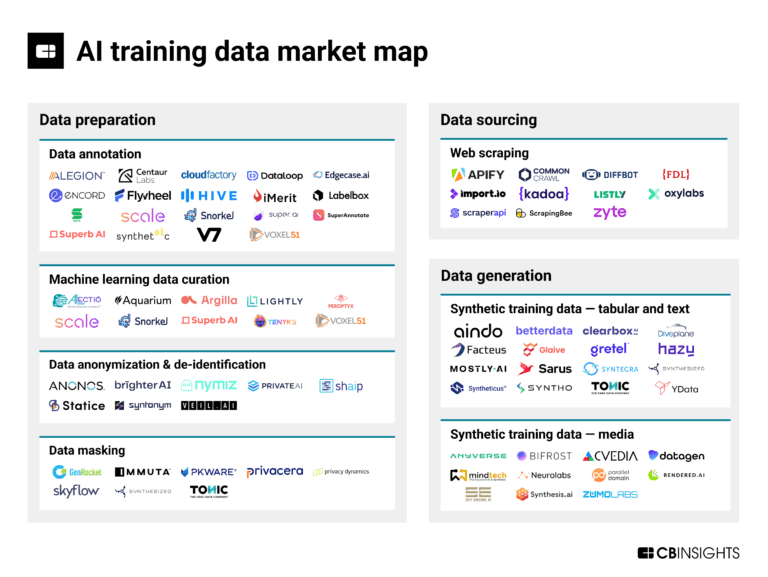
Feb 20, 2024
The AI training data market map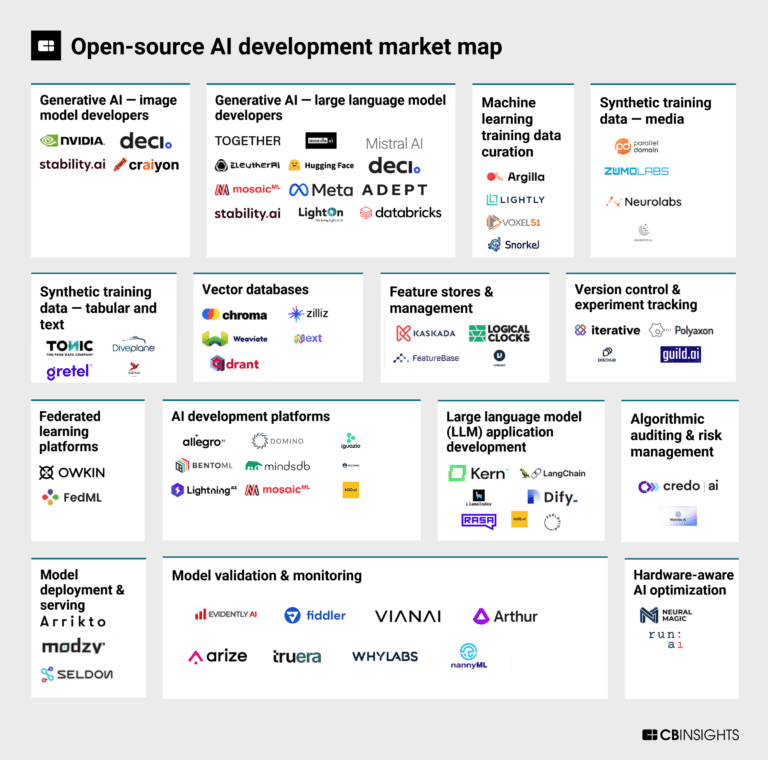
Oct 13, 2023
The open-source AI development market map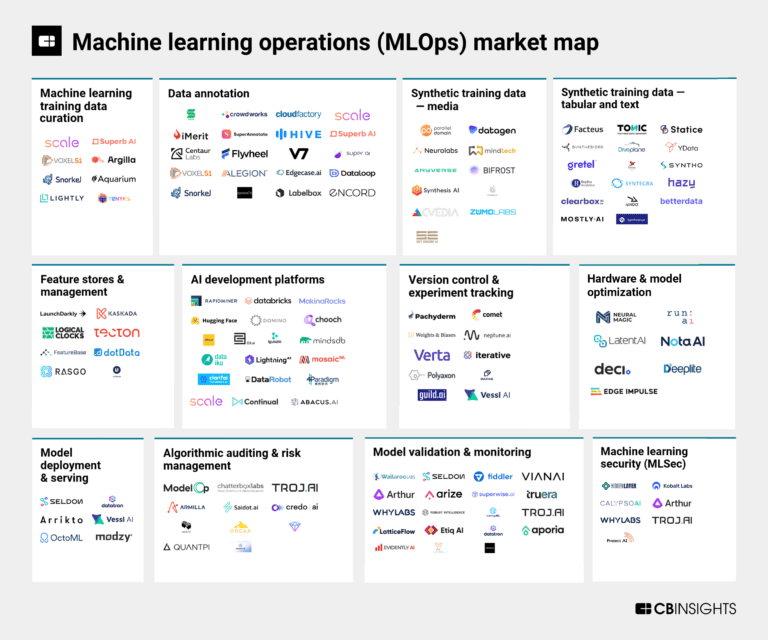
Sep 29, 2023
The machine learning operations (MLOps) market map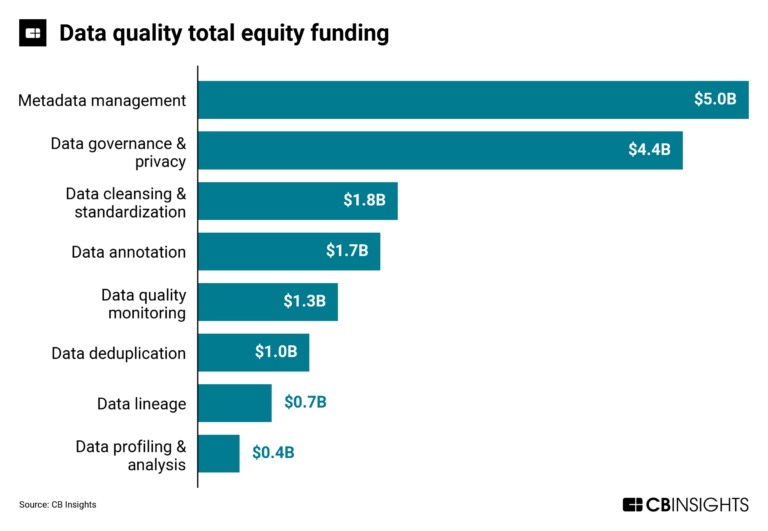
Jul 31, 2023
The data quality market mapExpert Collections containing Snorkel AI
Expert Collections are analyst-curated lists that highlight the companies you need to know in the most important technology spaces.
Snorkel AI is included in 4 Expert Collections, including Unicorns- Billion Dollar Startups.
Unicorns- Billion Dollar Startups
1,297 items
Artificial Intelligence (AI)
37,256 items
Companies developing artificial intelligence solutions, including cross-industry applications, industry-specific products, and AI infrastructure solutions.
AI 100 (All Winners 2018-2025)
100 items
Generative AI
2,951 items
Companies working on generative AI applications and infrastructure.
Snorkel AI Patents
Snorkel AI has filed 3 patents.
The 3 most popular patent topics include:
- artificial neural networks
- classification algorithms
- machine learning

Application Date | Grant Date | Title | Related Topics | Status |
|---|---|---|---|---|
6/26/2023 | Machine learning, Classification algorithms, Statistical classification, Artificial neural networks, Natural language processing | Application |
Application Date | 6/26/2023 |
|---|---|
Grant Date | |
Title | |
Related Topics | Machine learning, Classification algorithms, Statistical classification, Artificial neural networks, Natural language processing |
Status | Application |
Latest Snorkel AI News
Oct 22, 2025
As Big Tech doubles down on artificial intelligence by acquiring or investing in nimble startups, the workforces of those smaller companies are often the first to feel the impact. For employees, startups used to dangle the carrot of being able to grow with new technology and reap the benefits of being acquired by a larger giant, but now, many employees view it as a risk. Jose Luis Pelaez Inc | Digitalvision | Getty Images At around the same time Accenture announced its investment in data labeling startup Snorkel AI to power its financial services clients in August, the startup announced it was laying off about 13% of its staff. It wasn't alone. When Meta took a massive stake in Scale AI in June, the deal was billed as a sign of confidence in the fast-growing data-labeling company. It was also the catalyst that resulted in laying off 14% of its staff . Windsurf, a coding AI startup, offered buyouts to all of its employees after a failed OpenAI acquisition attempt. Once Cognition acquired the company , it laid off 30 staffers and was offering buyouts, according to The Information HP 's acquisition of AI pin company Humane led to some staffers receiving 30% to 70% increases in pay, according to Techcrunch – and layoffs immediately for others. The trend isn't slowing down, either. On Wednesday, Meta laid off 600 employees within its artificial intelligence unit, with Meta's Chief AI Officer (and Scale AI founder) Alexandr Wang announcing the layoffs in a memo to staff. As big technology companies double down on artificial intelligence by acquiring or investing in nimble startups, the workforces of those smaller companies are often the first to feel the impact. With Wall Street scrutinizing investments, instead of an eye towards keeping the startup culture and keeping employees happy, it's turning into quickly eliminating duplicate functions. “In the past, there would have been more concessions made to culture, to continuity, to that sort of thing,” said JP Gowinder, Forrester vice president and principal analyst. “That's just not where we are. Big Tech is all about cutting to the very minimum viable staff for a variety of reasons.” Accenture, Meta, Cognition and HP did not respond to requests for comment. While job losses after mergers are nothing new, the way tech giants are handling these AI-driven acquisitions feels different. Part of the disruption stems from the fact that large tech firms are still recalibrating their workforces after years of pandemic-era hiring. “As these big tech companies continue to pivot towards growth and that growth is generally driven by AI, they are going to shed lower growth or non-core assets, whether they divest them, they wind them down, or they restructure them,” said Malinda Gentry, EY-Parthenon Americas leader for the Technology, Media and Telecommunications (TMT) industry. “That is going to result in needing less of that workforce or creating a more streamlined and efficient workforce.” “What you're seeing now in the workforce and the adjustments you're seeing is driven by the rapid pace of AI,” Gentry said. Startup exits and career endgames The World Economic Forum estimates AI could eliminate 80 to 85 million jobs worldwide over the next three years, while creating as many as 170 million new ones. The challenge for tech workers is finding a place in the meantime while the industry shifts towards a more AI-enabled workforce. Startups in the space offer flashy offers and opportunities for future career growth, but with many of these companies eyeing exits as the final endgame, it also creates job volatility. Startups are less likely to be preserved as stand-alone units and more likely to be streamlined into big tech's existing operations. This is occurring within a labor market where job seekers have long since lost the Covid era “job hopping” edge. “When you buy a company, if you get rid of people who are at the company – unless you bought it purely for the IP or for the customer – you don't really want to get rid of the talent in general,” Forrester's Gowinder said. “But it is such an employer's market at the moment, what are people going to do?” The pace of AI development is another driver of workforce churn. The move towards AI has made many tech companies bet not only that they won't need entry level jobs, but also rethink the employee structure of their companies and placing a larger emphasis on senior roles. “They're moving toward a flatter organizational model, where they're getting rid of middle management layers,” Gowinder said. “So a lot of the layoffs happen at that middle management layer. It's a bet that technology, like collaboration technology and very clear product development life cycles, are just removing the need for extra layers of management.” For employees, startups used to dangle the carrot of being able to grow with new technology and reap the benefits of being acquired by a larger giant. But now, many employees view it as a risk. The uncertainty could change how AI startups recruit. Contracts may begin to include stronger guarantees of equity or severance in the event of an acquisition, as workers grow wary of being left behind in a deal. “The implication of this ‘buy and liquidate the staff' is sort of troubling,” Gowinder said. “It may make it a little harder for some of these startups to hire the talent that they want, if the talent that they want is hoping to have a share in the spoils of this.” Despite the turbulence, experts stress that layoffs don't tell the whole story. For every downsizing announcement, there are also hiring pushes in areas tied to AI strategy. Big tech is still racing to secure scarce talent in machine learning, data science, and AI safety. There's no turning back from an AI-powered tech workforce future. “There's going to continue to be a trend in workforce reduction,” Gentry said. “But that is balanced with the ability to continue to grow and acquire talent, whether that talent is hired, acquired, or partnered with in the ecosystem.”
Snorkel AI Frequently Asked Questions (FAQ)
When was Snorkel AI founded?
Snorkel AI was founded in 2019.
Where is Snorkel AI's headquarters?
Snorkel AI's headquarters is located at 55 Perry Street, Redwood City.
What is Snorkel AI's latest funding round?
Snorkel AI's latest funding round is Series D - II.
How much did Snorkel AI raise?
Snorkel AI raised a total of $235M.
Who are the investors of Snorkel AI?
Investors of Snorkel AI include Project Spotlight, Accenture Ventures, Greylock Partners, Lightspeed Venture Partners, QBE Ventures and 21 more.
Who are Snorkel AI's competitors?
Competitors of Snorkel AI include Selectstar, TrueFoundry, Toloka, Accrete, Centaur Labs and 7 more.
What products does Snorkel AI offer?
Snorkel AI's products include Snorkel Flow.
Who are Snorkel AI's customers?
Customers of Snorkel AI include Experian, Wayfair and Bank of America.
Loading...
Compare Snorkel AI to Competitors

Labelbox provides services and software for artificial intelligence (AI) data management and model evaluation within the artificial intelligence and machine learning sectors. The company offers managed labeling services, a platform for building data factories, and a network for hiring experienced AI trainers. Labelbox serves AI teams and organizations seeking to improve their model training and evaluation. It was founded in 2018 and is based in San Francisco, California.

SuperAnnotate offers centralized data operations for multimodal AI within the technology sector. The company provides tools for building, fine-tuning, and managing AI models, including data annotation, CI/CD pipeline orchestration, and project management. It serves sectors that require AI data operations, including machine learning, data engineering, and AI model training. It was founded in 2018 and is based in San Francisco, California.
Aya Data specializes in human-in-the-loop data science solutions within the data science and artificial intelligence (AI) sectors. The company offers services such as data annotation, acquisition, and the development of AI-driven solutions. Aya Data's solutions cater to various sectors including medical, retail, utilities, agriculture, and geospatial industries. It was founded in 2021 and is based in London, United Kingdom.

Alegion focuses on data annotation and collection services and operates within the artificial intelligence and machine learning industry. The company offers services such as data collection, data annotation, and quality control, aimed at transforming unstructured data into high-quality, model-ready training data. Alegion primarily serves sectors such as healthcare, hospitality, insurance, manufacturing, retail, security, software, and sports. It was founded in 2012 and is based in Austin, Texas.

Defined.ai operates within the artificial intelligence (AI) and machine learning sectors and provides a marketplace for various datasets, including multilingual speech and natural language processing data, as well as medical image analysis and content moderation resources. The company provides datasets for speech recognition, AI-driven diagnostics, and sentiment analysis, among other applications. Defined.ai was formerly known as DefinedCrowd. It was founded in 2015 and is based in Seattle, Washington.

Sama specializes in providing high-accuracy data annotation solutions for the development of computer vision AI models across various industries. The company offers a suite of services, including image and video annotation, 3D point cloud labeling, and data validation, to support machine learning professionals and AI team leads. Sama primarily serves sectors such as ADAS and autonomous vehicles, retail and e-commerce, consumer tech and media, robotics and manufacturing, and agriculture and food. It was founded in 2008 and is based in San Francisco, California.
Loading...

